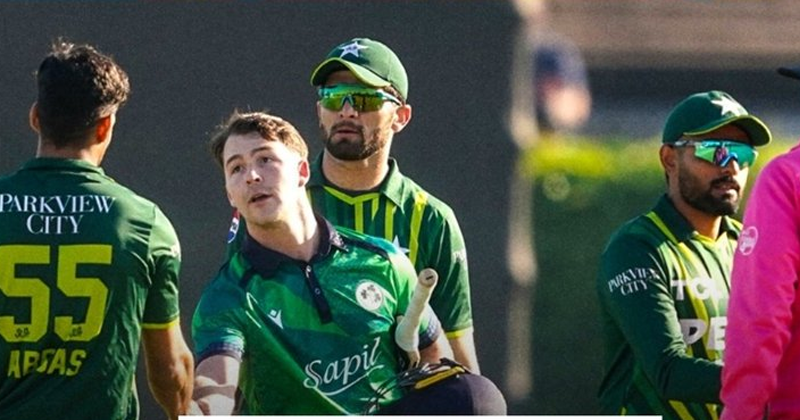کولڈ سٹارٹ ڈاکٹرائن، بھارت، امریکی دورہ اور پاکستان
موجودہ حالات کے پیش نظر یہ ضروری سمجھا گیا کہ اس موضوع پر پائے جانے والے کچھ شکوک و شبہات کا ازالہ کر دیا جائے تا کہ فوج اور عوام ایک ہی پیج پر ہوں۔ جنگ صرف فوج نہیں لڑتی، پورا ملک لڑتا ہے۔ کوشش کی جائے گی کہ کم سے کم الفاظ میں اور فوجی اصطلاحات سے پرہیز کرتے ہوئے بات سمجھانے کی کوشش کی جائے۔
کہانی شروع ہوتی ہے مشرف دور میں بھارتی پارلیمنٹ پر حملے سے۔ پاکستان کا اس میں ہاتھ تھا یا نہیں یا وہ بھارت کا اپنا ڈرامہ تھا ایک الگ بحث ہے اور اس پر بہت کچھ لکھا جا چکا ہے۔ اس حملے کے بعد بھارت نے یہ دعویٰ کیا کہ پاکستان اس میں ملوث ہے اور ہم پاکستان کو سبق سکھائیں گے۔ آپ کو یاد ہو گا کافی عرصہ پاکستان اور بھارت کی فوجیں سرحد پر آمنے سامنے تھیں۔ جنگ لگنے کے کافی امکانات تھے مگر نہیں ہو سکی۔ یہ جو جنگ نہیں ہو سکی اور بھارت پاکستان کو اپنی طرف سے 'سزا' نہیں دے سکا یہ کولڈ اسٹارٹ کی ابتدا تھی۔
اب یہ سمجھ لیتے ہیں پہلے کہ بھارت کچھ کر کیوں نہیں سکا تھا؟ فوج میں دو طرح کی فورسز ہوتی ہیں۔ ایک کو کہا جاتا ہے ہولڈنگ فورسز (روکنے والی) اور دوسری سٹرائیک فورسز (حملہ کرنے والی)۔ ہولڈنگ فورسز ہمیشہ بارڈر پر ہوتی ہیں جن کا کام کسی بھی ہونے والے حملے کو شروع میں روکنا ہوتا ہے تا کہ سٹرائیک فورسز کو وقت مل جائے اور وہ ایڈوانس کر کے دشمن پر جوابی حملہ کر سکیں۔ بھارت کی پرانی حکمت عملی کے تحت سٹرائیک فورسز دلی اور اس کے آس پاس تھیں۔ اس لیے جب بھارت نے حملے کی ٹھانی تو ان کو اگلے محاذ پر آنا پڑا۔
اس دوران ان کی نقل و حرکت انتہائی آہستہ تھی اور ان کو حملے کی پوزیشن میں آتے آتے تقریبا ً ایک مہینہ لگ گیا۔ اس دوران پوری دنیا اور پاکستان کو ان کے ارادوں کا علم ہو گیا، سفارتی کوششیں شروع ہو گئیں۔ بھارت پر بے تحاشا دباؤ پڑ گیا، ایٹمی جنگ کا خطرہ پیدا ہو گیا۔ نتیجہ یہ ہوا کہ بھارت نے شروع میں جو جنگی جنون کا ماحول بنایا تھا وہ قائم نہیں رہ پایا اور بھارت صرف 'شوک' کر رہ گیا۔
اب بھارت کو یہ احساس ہوا کہ اس کی موجودہ حکمت عملی کبھی بھی کام نہیں دے گی۔ اس لیے کولڈ اسٹارٹ پر کام شروع ہوا۔ یاد رہے کہ سرکاری طور پر بھارت ایسی کسی حکمت عملی سے انکاری ہے بلکہ وہ اسے 'پرو ایکِٹو حکمت عملی' کا نام دیتا ہے۔ بہرحال کانٹے کو جس نام سے بھی پکاریں وہ کانٹا ہی رہتا ہے۔ حقیقت یہ ہے کہ ایسی ایک نئی حکمت عملی بھارت نے بنائی ہے۔ اب اس کی تفصیل سنیں۔ اس کے تحت بھارت کی سٹرائیک فورسز اب بارڈر کے قریب رہتی ہیں۔ آخری جنگی مشقوں میں بھارت کے حملہ کرنے اور جنگ کے لئے تیار ہونے کا وقت ایک ماہ سے کم ہو کر اڑتالیس گھنٹے رہ گیا تھا۔ اور پلان یہ تھا کہ پاکستان پر حملہ اچانک اور ایسے انداز میں کیا جائےکہ وہ اور پوری بین الاقوامی برادری حیران رہ جائے، دباؤ ڈالنے کا موقع ہی نا ملے اور بعد میں جب بھارت حملہ کر چکا ہو تو بھارت اپنا 'کرودھ' نکال ک پیچھے لوٹ جائے اور بین الاقوامی دباؤ الٹا پاکستان پر پڑ جائے کہ دیکھیں جی وہ واپس چلے گئے ہیں، اب جنگ یا ایٹمی حملے کی کوئی تک نہیں بنتی۔ یوں جنگ کو ایٹمی سکیل پر لے جائے بغیر پاکستان کو سزا دینے کا پرانا بھارتی خواب پورا ہو سکے۔
اب بات ہو جائے اس کے توڑ کی۔ یہاں آپ پاکستان فوج کے جتنے مرضی ناقد ہوں آپ کو ان کے ملٹری پلاننگ کرنے والے دماغ کو داد دینی پڑے گی۔ توڑ کی طرف آنے سے پہلے کولڈ اسٹارٹ کی ایک خامی بھی سن لیجئے۔ اس بات کی کوئی گارنٹی کولڈ اسٹارٹ میں بھی نہیں تھی کہ پاکستان پہلے ہی دن ایٹمی حملہ نہیں کر دے گا۔ یہ سب اس مفروضے پر مبنی تھی کہ پاکستان انتہائی قدم اتنی جلدی نہیں اٹھائے گا جو کسی حد تک درست تھا مگر یقینی نہیں۔ پھر بھی پاکستان نے یہ محسوس کیا کہ اس کے امکانات واقعی میں ہیں اور ہم بھی نہیں چاہیں گے کہ فورا ً ہی ایک آل آؤٹ ایٹمی جنگ شروع ہو جائے۔ تو اس کے توڑ پر کام شروع ہوا۔
اب پتا نہیں وہ گمنام ہیرو کون ہیں، وہ دماغ کون ہیں، بہرحال ہماری طرف سے ان کو سلام۔ جی میں سمجھ رہا ہوں آپ کا تجسس انتہا کو پہنچ چکا ہے۔ ابھی بتاتا ہوں۔ پاکستان نے ایک نیا میزائل بنایا جو ایٹمی وار ہیڈ لے جا سکتا ہے، اس کا نام النصر ہے۔ اس کی خوبصورتی یہ ہے کہ یہ موبائل ہے، مطلب آپ نے ایک جگہ سے فائر کیا اور پھر 'دوڑ' کر دوسری جگہ سے فائر کیا، یوں اس کے لانچنگ پیڈ کو تباہ کرنا نا ممکن ہو گیا، دوسری خوبصورتی یہ ہے کہ یہ شارٹ رینج ہے، قریبی فاصلے پر مار کر سکتا ہے اور تیسری خوبصورتی یہ ہے کہ اس پر جو ایٹم بم لدا ہو گا وہ محض چالیس سے ساٹھ کلومیٹر کے دائرے میں تباہی پھیلائے گا۔ مطلب بارڈر کے آس پاس ایک پورا کینٹوونمنٹ بمع وہاں موجود تمام فوج کے 'غائب' کرنے کی صلاحیت رکھتا ہے جس میں بھارت کی اہم اہم سٹرائیک فورسز فوراً ہی نشانہ بن جائیں گی اور یوں بھارت کی کولڈ سٹارٹ حکمت عملی فیل ہو جائے گی کیونکہ وہ حملہ کرنے کی پوزیشن میں ہی نہیں رہے گا بلکہ بعد میں بین الاقوامی دباؤ الٹا بھارت پر ہو گا کہ پاکستان نے آپ پر کوئی ریگولر ایٹم بم نہیں پھینکا محض آپ کی فوج پر چھوٹے سکیل پر حملہ کیا ہے وہ بھی آپ کے حملے کے بعد یوں بھارت کو الٹا لینے کے دینے پڑ جائیں گے۔
یاد رکھیں کہ اس جوابی حکمت عملی میں بھی ایٹمی جنگ نا ہونے کی کوئی گارنٹی نہیں۔ سب سے بہتر تو یہی ہے کہ بھارت پاکستان کو 'سزا' دینے کے اپنے جنون پر قابو پائے۔ دو نیوکلیئر ملکوں میں جنگ کوئی آپشن ہی نہیں ہے، ان کو کسی بھی پیمانے پر جنگ نہیں کرنی چاہیے۔ بہرحال النصر میزائل بھارت کے پیٹ میں اٹھنے والی تازہ ترین درد ہے اور اسی لئے نواز شریف صاحب کی امریکا میں طلبی ہوئی ہے۔ آپ کو یاد ہو گا آرمی چیف کا بیان کہ چاہے کولڈ سٹارٹ ہو یا ہاٹ سٹارٹ، ہم تیار ہیں۔
تب سے بھارت اور پاکستان دوبارہ برابری کی پوزیشن پر آ چکے ہیں اور یہ امریکا سرکار کو پسند نہیں۔ دورے کا دوسرا پہلو پاکستان کو کوئی چھوٹی موٹی 'مونگ پھلی' دے کر اپنے نیوکلیئر پروگرام پر کچھ پابندیاں لگوانے پر آمادہ کرنا ہے۔ لیفٹیننٹ جنرل ناصر جنجوعہ کو اسی لئے اچانک سرچارج عزیز معاف کیجئے گا سرتاج عزیز کی جگہ لگایا گیا ہے تا کہ نواز شریف صاحب کے دورے کے دوران پاکستان کا موقف کھل کر بیان کیا جا سکے اور کوئی غیر حقیقی معاہدہ نا ہو سکے۔
امید ہے کہ نواز شریف صاحب بھی ملکی مفاد کے خلاف چھپ چھپا کر جانے کی کوشش نہیں کریں گے ورنہ بقول ایک اینکر کے شائد ان کا واپس آنا ممکن نا ہو اور ان کو امریکا میں ہی رہنا پڑ جائے۔
نوٹ: اس پورے مضمون میں کوئی بھی چیز ایسی نہیں ہے جو 'سیکرٹ' کا درجہ رکھتی ہو۔ یہ سب کھلے عام موجود معلومات کی بنیاد پر لکھا گیا۔ ہاں صرف ان کو اکھٹا کرنے کا کام مصنف سے سرزد ہوا ہے۔ پاک فوج زندہ باد، پاکستان پائندہ باد۔ نواز شریف بھی زندہ باد اگر وہ اپنی خوشی سے پاکستان کے دفاع اور مفاد کا خیال رکھتے رہیں تو۔
موجودہ حالات کے پیش نظر یہ ضروری سمجھا گیا کہ اس موضوع پر پائے جانے والے کچھ شکوک و شبہات کا ازالہ کر دیا جائے تا کہ فوج اور عوام ایک ہی پیج پر ہوں۔ جنگ صرف فوج نہیں لڑتی، پورا ملک لڑتا ہے۔ کوشش کی جائے گی کہ کم سے کم الفاظ میں اور فوجی اصطلاحات سے پرہیز کرتے ہوئے بات سمجھانے کی کوشش کی جائے۔
کہانی شروع ہوتی ہے مشرف دور میں بھارتی پارلیمنٹ پر حملے سے۔ پاکستان کا اس میں ہاتھ تھا یا نہیں یا وہ بھارت کا اپنا ڈرامہ تھا ایک الگ بحث ہے اور اس پر بہت کچھ لکھا جا چکا ہے۔ اس حملے کے بعد بھارت نے یہ دعویٰ کیا کہ پاکستان اس میں ملوث ہے اور ہم پاکستان کو سبق سکھائیں گے۔ آپ کو یاد ہو گا کافی عرصہ پاکستان اور بھارت کی فوجیں سرحد پر آمنے سامنے تھیں۔ جنگ لگنے کے کافی امکانات تھے مگر نہیں ہو سکی۔ یہ جو جنگ نہیں ہو سکی اور بھارت پاکستان کو اپنی طرف سے 'سزا' نہیں دے سکا یہ کولڈ اسٹارٹ کی ابتدا تھی۔
اب یہ سمجھ لیتے ہیں پہلے کہ بھارت کچھ کر کیوں نہیں سکا تھا؟ فوج میں دو طرح کی فورسز ہوتی ہیں۔ ایک کو کہا جاتا ہے ہولڈنگ فورسز (روکنے والی) اور دوسری سٹرائیک فورسز (حملہ کرنے والی)۔ ہولڈنگ فورسز ہمیشہ بارڈر پر ہوتی ہیں جن کا کام کسی بھی ہونے والے حملے کو شروع میں روکنا ہوتا ہے تا کہ سٹرائیک فورسز کو وقت مل جائے اور وہ ایڈوانس کر کے دشمن پر جوابی حملہ کر سکیں۔ بھارت کی پرانی حکمت عملی کے تحت سٹرائیک فورسز دلی اور اس کے آس پاس تھیں۔ اس لیے جب بھارت نے حملے کی ٹھانی تو ان کو اگلے محاذ پر آنا پڑا۔
اس دوران ان کی نقل و حرکت انتہائی آہستہ تھی اور ان کو حملے کی پوزیشن میں آتے آتے تقریبا ً ایک مہینہ لگ گیا۔ اس دوران پوری دنیا اور پاکستان کو ان کے ارادوں کا علم ہو گیا، سفارتی کوششیں شروع ہو گئیں۔ بھارت پر بے تحاشا دباؤ پڑ گیا، ایٹمی جنگ کا خطرہ پیدا ہو گیا۔ نتیجہ یہ ہوا کہ بھارت نے شروع میں جو جنگی جنون کا ماحول بنایا تھا وہ قائم نہیں رہ پایا اور بھارت صرف 'شوک' کر رہ گیا۔
اب بھارت کو یہ احساس ہوا کہ اس کی موجودہ حکمت عملی کبھی بھی کام نہیں دے گی۔ اس لیے کولڈ اسٹارٹ پر کام شروع ہوا۔ یاد رہے کہ سرکاری طور پر بھارت ایسی کسی حکمت عملی سے انکاری ہے بلکہ وہ اسے 'پرو ایکِٹو حکمت عملی' کا نام دیتا ہے۔ بہرحال کانٹے کو جس نام سے بھی پکاریں وہ کانٹا ہی رہتا ہے۔ حقیقت یہ ہے کہ ایسی ایک نئی حکمت عملی بھارت نے بنائی ہے۔ اب اس کی تفصیل سنیں۔ اس کے تحت بھارت کی سٹرائیک فورسز اب بارڈر کے قریب رہتی ہیں۔ آخری جنگی مشقوں میں بھارت کے حملہ کرنے اور جنگ کے لئے تیار ہونے کا وقت ایک ماہ سے کم ہو کر اڑتالیس گھنٹے رہ گیا تھا۔ اور پلان یہ تھا کہ پاکستان پر حملہ اچانک اور ایسے انداز میں کیا جائےکہ وہ اور پوری بین الاقوامی برادری حیران رہ جائے، دباؤ ڈالنے کا موقع ہی نا ملے اور بعد میں جب بھارت حملہ کر چکا ہو تو بھارت اپنا 'کرودھ' نکال ک پیچھے لوٹ جائے اور بین الاقوامی دباؤ الٹا پاکستان پر پڑ جائے کہ دیکھیں جی وہ واپس چلے گئے ہیں، اب جنگ یا ایٹمی حملے کی کوئی تک نہیں بنتی۔ یوں جنگ کو ایٹمی سکیل پر لے جائے بغیر پاکستان کو سزا دینے کا پرانا بھارتی خواب پورا ہو سکے۔
اب بات ہو جائے اس کے توڑ کی۔ یہاں آپ پاکستان فوج کے جتنے مرضی ناقد ہوں آپ کو ان کے ملٹری پلاننگ کرنے والے دماغ کو داد دینی پڑے گی۔ توڑ کی طرف آنے سے پہلے کولڈ اسٹارٹ کی ایک خامی بھی سن لیجئے۔ اس بات کی کوئی گارنٹی کولڈ اسٹارٹ میں بھی نہیں تھی کہ پاکستان پہلے ہی دن ایٹمی حملہ نہیں کر دے گا۔ یہ سب اس مفروضے پر مبنی تھی کہ پاکستان انتہائی قدم اتنی جلدی نہیں اٹھائے گا جو کسی حد تک درست تھا مگر یقینی نہیں۔ پھر بھی پاکستان نے یہ محسوس کیا کہ اس کے امکانات واقعی میں ہیں اور ہم بھی نہیں چاہیں گے کہ فورا ً ہی ایک آل آؤٹ ایٹمی جنگ شروع ہو جائے۔ تو اس کے توڑ پر کام شروع ہوا۔
اب پتا نہیں وہ گمنام ہیرو کون ہیں، وہ دماغ کون ہیں، بہرحال ہماری طرف سے ان کو سلام۔ جی میں سمجھ رہا ہوں آپ کا تجسس انتہا کو پہنچ چکا ہے۔ ابھی بتاتا ہوں۔ پاکستان نے ایک نیا میزائل بنایا جو ایٹمی وار ہیڈ لے جا سکتا ہے، اس کا نام النصر ہے۔ اس کی خوبصورتی یہ ہے کہ یہ موبائل ہے، مطلب آپ نے ایک جگہ سے فائر کیا اور پھر 'دوڑ' کر دوسری جگہ سے فائر کیا، یوں اس کے لانچنگ پیڈ کو تباہ کرنا نا ممکن ہو گیا، دوسری خوبصورتی یہ ہے کہ یہ شارٹ رینج ہے، قریبی فاصلے پر مار کر سکتا ہے اور تیسری خوبصورتی یہ ہے کہ اس پر جو ایٹم بم لدا ہو گا وہ محض چالیس سے ساٹھ کلومیٹر کے دائرے میں تباہی پھیلائے گا۔ مطلب بارڈر کے آس پاس ایک پورا کینٹوونمنٹ بمع وہاں موجود تمام فوج کے 'غائب' کرنے کی صلاحیت رکھتا ہے جس میں بھارت کی اہم اہم سٹرائیک فورسز فوراً ہی نشانہ بن جائیں گی اور یوں بھارت کی کولڈ سٹارٹ حکمت عملی فیل ہو جائے گی کیونکہ وہ حملہ کرنے کی پوزیشن میں ہی نہیں رہے گا بلکہ بعد میں بین الاقوامی دباؤ الٹا بھارت پر ہو گا کہ پاکستان نے آپ پر کوئی ریگولر ایٹم بم نہیں پھینکا محض آپ کی فوج پر چھوٹے سکیل پر حملہ کیا ہے وہ بھی آپ کے حملے کے بعد یوں بھارت کو الٹا لینے کے دینے پڑ جائیں گے۔
یاد رکھیں کہ اس جوابی حکمت عملی میں بھی ایٹمی جنگ نا ہونے کی کوئی گارنٹی نہیں۔ سب سے بہتر تو یہی ہے کہ بھارت پاکستان کو 'سزا' دینے کے اپنے جنون پر قابو پائے۔ دو نیوکلیئر ملکوں میں جنگ کوئی آپشن ہی نہیں ہے، ان کو کسی بھی پیمانے پر جنگ نہیں کرنی چاہیے۔ بہرحال النصر میزائل بھارت کے پیٹ میں اٹھنے والی تازہ ترین درد ہے اور اسی لئے نواز شریف صاحب کی امریکا میں طلبی ہوئی ہے۔ آپ کو یاد ہو گا آرمی چیف کا بیان کہ چاہے کولڈ سٹارٹ ہو یا ہاٹ سٹارٹ، ہم تیار ہیں۔
تب سے بھارت اور پاکستان دوبارہ برابری کی پوزیشن پر آ چکے ہیں اور یہ امریکا سرکار کو پسند نہیں۔ دورے کا دوسرا پہلو پاکستان کو کوئی چھوٹی موٹی 'مونگ پھلی' دے کر اپنے نیوکلیئر پروگرام پر کچھ پابندیاں لگوانے پر آمادہ کرنا ہے۔ لیفٹیننٹ جنرل ناصر جنجوعہ کو اسی لئے اچانک سرچارج عزیز معاف کیجئے گا سرتاج عزیز کی جگہ لگایا گیا ہے تا کہ نواز شریف صاحب کے دورے کے دوران پاکستان کا موقف کھل کر بیان کیا جا سکے اور کوئی غیر حقیقی معاہدہ نا ہو سکے۔
امید ہے کہ نواز شریف صاحب بھی ملکی مفاد کے خلاف چھپ چھپا کر جانے کی کوشش نہیں کریں گے ورنہ بقول ایک اینکر کے شائد ان کا واپس آنا ممکن نا ہو اور ان کو امریکا میں ہی رہنا پڑ جائے۔
نوٹ: اس پورے مضمون میں کوئی بھی چیز ایسی نہیں ہے جو 'سیکرٹ' کا درجہ رکھتی ہو۔ یہ سب کھلے عام موجود معلومات کی بنیاد پر لکھا گیا۔ ہاں صرف ان کو اکھٹا کرنے کا کام مصنف سے سرزد ہوا ہے۔ پاک فوج زندہ باد، پاکستان پائندہ باد۔ نواز شریف بھی زندہ باد اگر وہ اپنی خوشی سے پاکستان کے دفاع اور مفاد کا خیال رکھتے رہیں تو۔
































